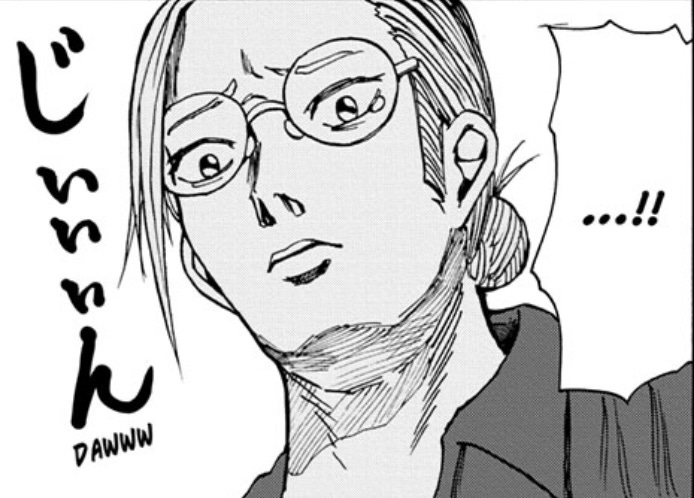Sometimes I’m just reading along, happy as can be, and I hit a panel that literally just grips me. Holds my attention for seconds, moments, minutes, I don’t even know how long, because I don’t even realize it’s happening until I snap out of it and time has passed.
That happened just the other day, for this very panel from Sakamoto Days.
Long has Sakamoto Days been on my reading list, long have I put it off, but I’ve been burning through it lately, and for good reason—it’s a breezy read, so much fun, not a lot of emotional depth.
Or at least, for the most part. Then I met this panel.
This is from chapter 16, panel 15.
Context: After a silly stay at a theme park, Sakamoto shows just how dedicated of a father he is in finding exactly what his daughter, Hana, wants, no matter how out of the way it is. That’s funny, and it could have stopped there, but rather than leave it at comedy, Sakamoto Days flashes back to the birth of Hana, and it’s the very first time in the series that we see something in his eyes we’ve never seen before.
There are a few things that make this panel so incredibly powerful, but it all stems from one major factor—Sakamoto’s eyes are always shielded behind his opaque glasses. On the rare occasion we do see his eyes, it’s to show just how serious he is, or just how determined he is. How unflinching he is. How, even if you were to see behind his glasses, you would see no emotion. It never breaks his character. So even if, as readers, we are wondering what his eyes looks like, it’s not like we’re denied any glimpse. The difference here is that it’s the first time we’re seeing real emotion in his eyes.
In this moment, we have flashed back to the birth of his daughter, and what a time to show us a first glimpse of his emotions. It’s a humanizing moment, the first we’ve really had with Sakamoto for the reasons listed above—he doesn’t show emotion. It’s an artistic choice to deny readers this long, and similarly, it’s an artistic choice to reveal it now. It solidifies just why he fights so hard for his family, why he gave up all he had, all he was, to be a father. Up until this point, it could have been inferred, sure, but seeing those teary eyes, that drove it home.
Plus, this now this opens up the potential for more and more eye reveals as catalysts to seeing into Sakamoto’s psyche. Although, as of writing, I have yet to see it used again to such a capacity, but yes, I am indeed waiting for that next emotional moment. Maybe we see him angry, who knows.
Let me get something out there, and forgive me if this sounds ignorant, but being childless, I don’t necessarily connect with the emotional magnitude of having a little squirt. I say this to point out that the context of the situation isn’t what glued me to this panel. It was solely down to Sakamoto’s reaction. Sakamoto, who I was already attached to for his humor. That’s the power that storytellers wield when they make intentional choices like this. By withholding his emotions all this time, he could have been choked up about anything and it would have landed the same, because we’ve been denied his emotional depth all this time.
And this all comes from one singular panel. One single panel and the emotional depth of Sakamoto expands like a chia pet. It also sets up the expectation for more such moments, because immediately after this panel, his glasses go opaque again and we’re back to the humor-driven action extravaganza that we’ve been loving all this time.
This ties back into what I’ve talked about before, the proportions of story, and how, the longer you deny your readers certain aspects, the more weight those aspects bear when they’re eked out along the way. The Summer Hikaru Died does this with horror, but that’s more expected and paced out. This, for the most part, was completely unexpected and, again, stands alone as of how far I’ve gotten into the se
Do note, this is not the last you’ve heard of this panel, I’ll be going deeper into the power of pictures to convey more than words at the end of the week. See you then.




